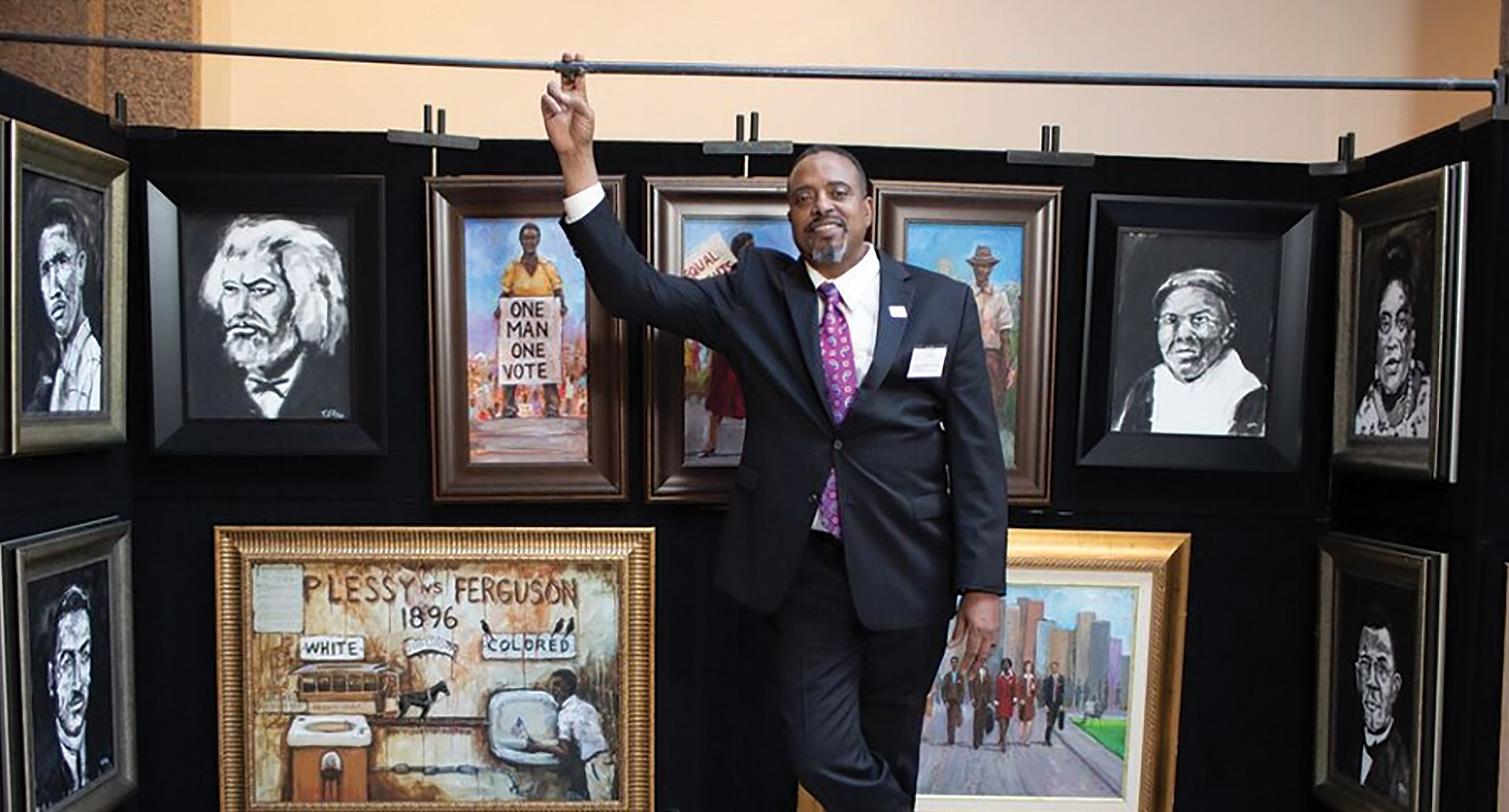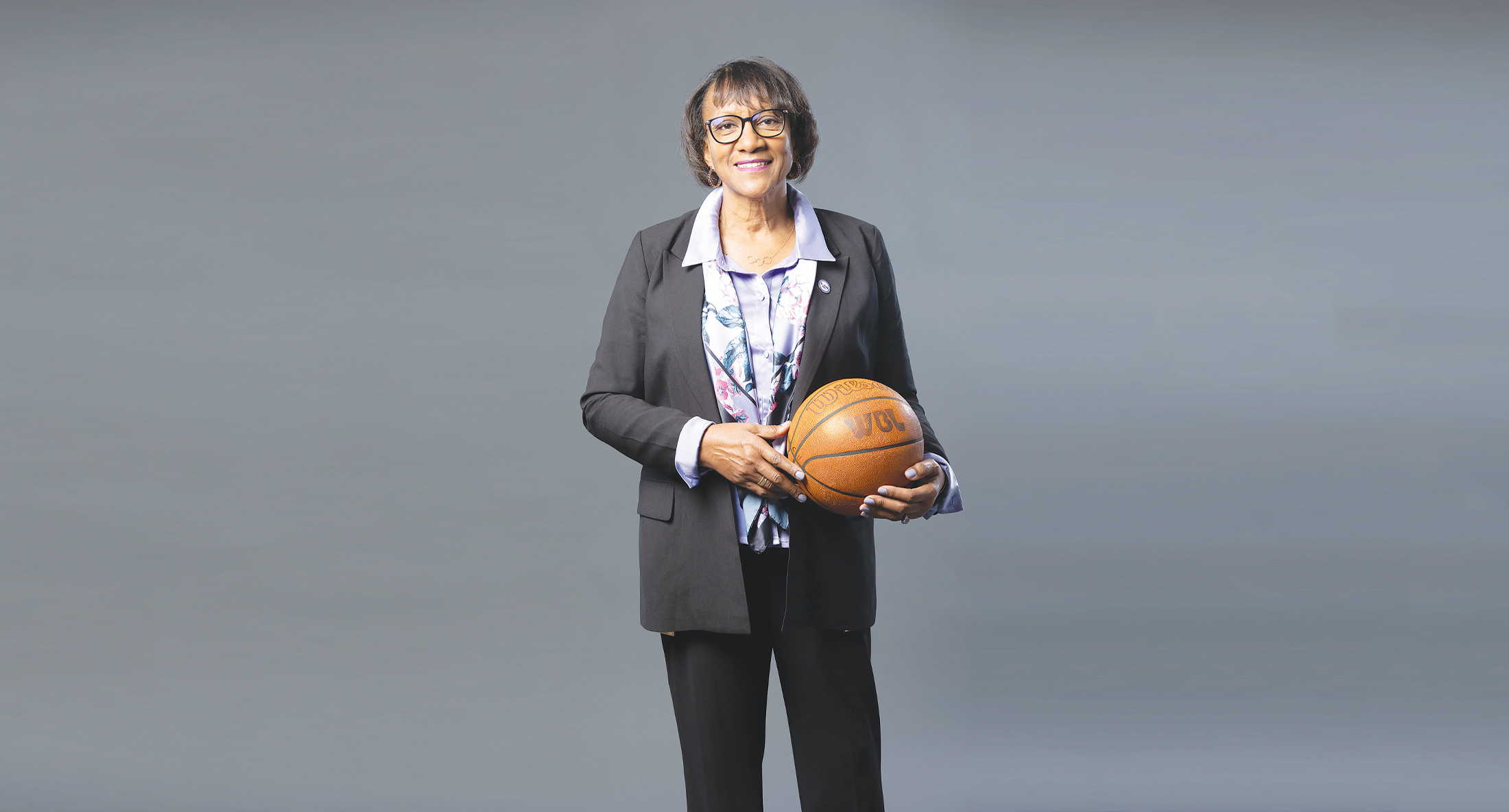Consumer goods giant Procter & Gamble’s commitment to challenging the imbalance of minority representation in the advertising and film industries is fueled by two convictions: Not only is it the right thing to do; in terms of business, it’s simply the smart thing to do.
P&G’s Widen the Screen initiative, a content creation, talent development and partnership platform, is opening up doors to Black filmmakers, especially women, that were previously inaccessible to them. “We know that telling authentic stories that are more diverse from the mouths of multicultural talent is actually good for business growth,” says Grace Janes, who leads the Queen Collective, the largest program within Widen the Screen.
Widen the Screen is making waves and winning awards—most recently, a Gold Effie Award celebrating the best in U.S. marketing in the category of Positive Change: Social Good—Diversity, Equity and Inclusion.
Through a creative partnership with music and movie icon Queen Latifah, the Queen Collective gives women filmmakers of color a platform to share important stories from their unique perspective. “We have a proven strategy for business growth,” says Janes. “Gender-equal advertising performs up to 20% better when it comes to generating equity, trust, and sales growth, so getting more female directors into the creative ecosystem is good for business growth.”
“Without proper representation from our own authentic voice, ignorance persists.”
Six new films will be released within the next year as part of the Queen Collective. Walking WayMaker Journal through them, Janes provides a personal example of just how important it is for viewers to be able to see themselves represented on the screen.
In Bone Black, Imani Dennison documents the nontraditional birthing methods practiced in parts of the South through the work of doula Charnise Littles. “I really resonated with her story because I’m a mother of three beautiful Black boys,” says Janes, noting the “really deplorable” statistics relating to Black maternal health that highlight “so many inequalities in health care that we face versus our white peers and non-Black peers.”
Luchina Fisher’s Team Dream, which follows two older Chicago women swimmers overcoming age and race barriers to train for the National Senior Games, took Janes back to her days running track in high school and college. “I know what it means to be a competitive sportsman, so I could really identify with the story she is telling on sacrifice, perseverance, and sportsmanship.”
Found by Contessa Gayles follows scores of young Black girls aged nine to 15 who take part in a Camp Founder Girls week in San Antonio. It resonates with Janes for whom “some of my best memories growing up are going to camp and all of those adventures… a coming-of-age story.”
There is even a connection for Janes in this year’s scripted project, Gaps (Jenn Shaw, director), which follows self-conscious 12-year-old Sydney Bailey as she struggles with self-esteem because of her gapped front teeth. The story reminds Janes of her childhood when her brother affectionately called her a buck-tooth beaver because of the gap she had in her teeth.
“I was self-conscious about my smile but I was fortunate because my parents could afford to get me braces to fix my overbite,” says Janes. “Now people tell me, ‘Your smile is amazing.’ Little do they know, I had this huge overbite and gap.
“As just one individual I can see myself in several different stories.”
‘Authentic stories’
Janes brings more than a decade’s brand management experience with her into her P&G studios role. A Columbia University graduate with an MBA from Harvard Business School, she joined the company as an assistant brand manager after five years with General Mills. Her P&G roles spanned several different operating units, including beauty care products, hair care products, and baby care products.
P&G’s partnership with Queen Latifah goes back a long way. She was the face of the company’s CoverGirl Queen Collection sub-line in 2006, forging an enduring friendship with Marc Pritchard, P&G’s chief brand officer. They were concerned that Black representation in the advertising and entertainment worlds was so low: less than 6% of writers, directors, and producers of U.S.-produced films are Black. Meanwhile, two out of three Black people don’t feel they see themselves or their culture reflected accurately or authentically on screen.
The pair’s ongoing discussions about how to make a difference led to the launch of the Queen Collective in 2018.
It’s a three-way partnership between Latifah’s Flavor Unit Entertainment production company, P&G, and Tribeca Studios that has so far released or is in the production of 14 total films—six of them will be released within a year. Filmmakers are chosen to “tell their authentic stories in their own voice” and are given free rein, Janes explains. “We’re not telling them what to talk about. We want to make sure that we’re truly giving them the chance to share an accurate portrayal of the nuances of Black life from our Black female filmmakers directly.”
Janes identifies deeply with the mission. A first-generation Black American, her father was born in Barbados and her mother in Guyana. “They both had to work to get to this country,” she says. “My brother and I were raised to not take anything for granted.”
The Queen Collective releases are now part of P&G’s broader Widen the Screen initiative launched last year. “Without true and accurate portrayals of who we are, or without proper representation from Black and brown people who are speaking from their own authentic voice, stereotypes and ignorance persists,” Janes says.
‘Expansive content’
Widen the Screen was created “because we realized that sustained action and investment are necessary to address the systemic bias and inequality in advertising in media.” She describes Widen the Screen as “an expansive content creation, talent development and partnership platform that celebrates creativity and enables Black creators to share the full richness of the Black experience.”
She quotes the Widen the Screen vision statement: “Only when we widen the screen to widen our view can we all broaden the spectrum of images we see, the voices we hear, the stories we tell, and the people we understand fully.”
P&G brands My Black is Beautiful and Olay have been sponsors of the Queen Collective from the start, with other brands like Pampers and Oral Care joining the program because they “see a path to sustainable business growth if they can win with our multicultural consumers.” Prospective filmmakers are introduced to P&G brands that support the Queen Collective mission. The aim is “to work with the brands to authentically marry our filmmakers’ unique Queen Collective story with the brands’ ambitions in an adjacent storytelling piece,” says Janes.
As part of the Widen the Screen initiative, P&G teamed up with Tribeca Studios and Saturday morning, a collective of Black creative executives, to debut 8:46 Films at the 2021 Tribeca Festival—four films celebrating the Black experience that each run for 8 minutes and 46 seconds, the time in which George Floyd’s life was taken. The program aired on BET and CBS.
One of Jane’s goals is to see the P&G-backed movies shown more widely. “We need to make sure that we are really cascading and distributing this messaging broadly, so that people see the full vastness of Black life,” she says, “the fullness, the richness, the joy, the happiness, the sadness—all aspects of Black life. It’s incredibly important that it’s broadcast on more than just one network or two networks, so we have teamed up with several Black-owned and -operated partners to join us in this effort.”
Having Their Say
Queen Collective filmmakers share their experiences of being part of the project.
“Queen Collective is putting their money where their mouth is. We got mentorship. We got exposure. Our films went to Tribeca and different platforms that you don’t hear of documentary short-films going to.”
— B.Monét, Ballet After Dark (2019)
“I think without P&G’s help I wouldn’t be on the journey that I’m on now. It kind of changes people’s lives, honestly. I know it changed mine and altered it in a very good way. They are taking real chances on people and that’s not something that happens very often. If it weren’t for the Queen Collective, I don’t think I would have been where I am today, or as well prepared. I love the kind of bravery that the program has.”
— Haley Elizabeth Anderson, If There Is Light (2019)
“I think the biggest thing that the Queen Collective does, is that is prioritizes stories from marginalized filmmakers. You’re making these films with a cohort of other women of color and we’ve all faced the same kinds of challenges. I love that I’ve been able to continue working on issues that really align with my values and really kind of came out of what I did for the Queen Collective.”
— Samantha Knowles, Tangled Roots (2020)
“Access and money are real barriers in this industry. It’s really amazing to be 26 and receive a budget to do a short documentary. Being able to premiere at Tribeca Film Festival, which is a top-tier festival, does mean a lot going forward in my career.”
— Cai Thomas, Change the Name (2021)
“Telling stories that are more diverse, more cultural, is actually good for business growth.”
Grace Janes: My WayMaker
My grandmother was amazing. She lived until she was 97 years old; she’s in heaven now, looking down on me, and is undoubtedly one of my angels. I am a first-generation American; my mother and grandmother emigrated here from Guyana, and my grandmother had 13 children. She epitomized the reverent Black woman who always sought God first and always instilled that value in us. She was very big on hard work. She could testify to all of the successes she achieved through a lot of prayer, faith, and hard work. She was truly an inspiration to me.
From an interview with Louis Carr
This article was originally published in the Fall 2022 issue of WayMaker Journal.
Arts
January 9, 2024




